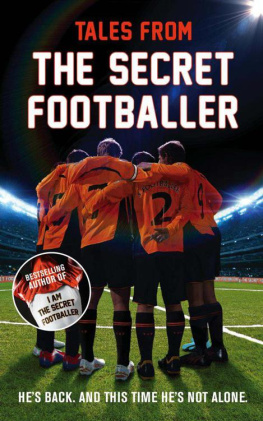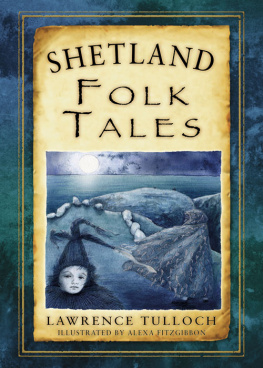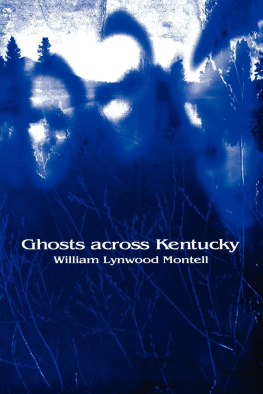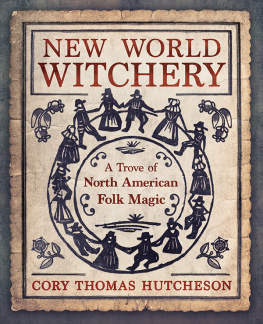TROLLS.
BARROW- OR MOUNT-FOLK, ELF-FOLK AND DWARFS.
ORIGIN OF TROLLS.
I.
T HE people in Jutland relate, that when our Lord cast the fallen angels out of heaven, some of them fell down on the mounds or barrows and became Barrow-folk, or, as they are also called, Mount-folk, Hill-folk; others fell into the elf-moors, who were the progenitors of the Elf-folk; while others fell into dwellings, from whom descend the domestic sprites or Nisser.
II.
While Eve was one day washing her children by a spring, our Lord unexpectedly appeared before her, whereat she was terrified, and concealed those of her children that were not yet washed. Our Lord asked her if all her children were there; she answered yes, to avoid his anger, if he should see that they were not all washed. Then said our Lord, that what she had concealed from him should thenceforth be concealed from mankind; and at the same moment the unclean children disappeared and were concealed in the hills. From these descend all the underground folk.
In a rabbinic tradition it is said, that after Adam had eaten of the tree of knowledge he was accursed for a hundred and thirty years. During all these years, as we are informed by Rabbi Jeremias ben Elieser, he procreated only schedim, i. e. demons and the like.
ELF-FOLK.
The Elf-folk dwell in the Elf-moors. The male appears as an old man with a broad-brimmed hat; the female Elf is young and seducing in appearance, but behind she is as hollow as a dough-trough. Young men should be particularly on their guard against her, for it is difficult to withstand her, and she has besides a stringed instrument, when she touches which she infatuates every heart. The male is often to be seen by the Elf-moors basking in the sunbeams; but if any one approach him too near, he will stretch his jaws and blow on them, which causes sickness and pestilence. The females are most frequently to be seen in the moonlight, when they dance their circling dance in the high grass with such lightness and grace, that they seldom get a refusal, when they offer a young man their hand. Good care must be taken to prevent cattle from grazing where the Elf-folk have been; for if an animal come on a place where they have either spat or done worse, it will be seized with grievous complaints, which can be remedied only by giving them to eat a handful of St. Johns wort, gathered on St. Johns night at twelve oclock. It may also happen that they receive injury by mingling with the Elf-folks cattle, which are particularly large and of a blue colour. Such are sometimes to be seen in the fields licking the dew from the grass, for it is on that they live. The peasant may, however, provide against the evils above-mentioned, if, before he lets his cattle loose, he goes to the Elf-barrow and says: Thou little Troll! may I graze my cows on thy mount? If he gets no refusal, he may feel easy.
Between Terslse and Sobierg lies Sobierg-Banke, which is the richest barrow in all Seeland; it is in fact impossible to tell the precious things to be found there. In this hill there dwells a Troll-wife, to whom there was once a grand procession from Steenlille field, when the Troll in Galtebierg took her to wife.
It often happens, in fine weather, that the passer-by sees the most beautiful copper utensils and choicest beddings lying on the mound to be aired; and on approaching still nearer, he may see the young Elflings labouring to get them all in with the utmost speed.
In Illerup field near Kallundborg there is a mount called Fibierg-Bakke, in which there is a vast number of Trolls, who have much property and gold there. It may be plainly seen that they have a hole in the mount through which they drag those on whom they seize. At Yule one may see how they bring out their silver and gold to sun it, at which time it is dangerous to go on the mount. But on St. Johns night the entire mount is set on red pillars, and then dancing and merry-making may be seen there. At this time any one may approach, and may also see how they drag great chests full of money backwards and forwards.
In Laanehi on r the Troll-folk may frequently be heard slamming their coffer-lids. Some harvest-people once sitting on the mount at their repast, heard, by placing their ear to the earth, that they were grinding corn in it.
That Mount-folk formerly dwelt in Gallehi on r there can hardly be entertained a doubt; for not only have people heard them slam their coffer-lids, but the smith in Lille-Rise, who in the war time kept watch there, heard every morning a clock strike five in the mount.
Near strel, between Aalborg and Thisted, there is a mount, in which there dwells an elfin smith. At night one may plainly hear that smiths work is going on there; and in the side of the mount there is a hole, by which in the morning slag and flakes of iron may be found.
In the neighbourhood of Sundby, on the isle of Mors, there is a mount inhabited by a Troll who is a smith. At night one may hear when he is at work. Opposite to this mount there is a sand-hill, where the same smith has another workshop, whence may be heard the strokes of ponderous hammers. At midnight he often rides through the air from one workshop to the other, on a horse without a head, with hammer in hand, followed by all his apprentices and journeymen.

In the parish of Buur there are three large mounts. In one of them dwells a Troll who is a smith and has his workshop there. At night fire may frequently be seen issuing from the top of the mount, and, singular enough, entering again at the side; but it is by that means he keeps his iron hot. If any one is desirous of having a piece of iron forged, he needs only to lay it on the mount, together with a silver skilling, at the same time saying what he wishes done, and the next morning the skilling will have disappeared, and the piece of work desired will lie ready and well executed.
Once some of the country people of Buur determined to dig up this Trolls treasure; for which purpose they one night assembled with spades and pickaxes. After all had been informed that they must beware of uttering even a single word, however strongly they might be tempted, they set to work. But scarcely had they put a spade in the ground before all sorts of frightful sights came out of the mount. Still they dug on unconcerned in the most perfect silence, until they arrived at a spacious stone apartment. There lay the treasure before them, to wit, a large copper kettle full of gold money, close by which was an enormous black dog asleep. One of the men then taking off his coat, laid the dog gently upon it, for the purpose of carrying him away. At this moment came a great load of hay out of the mount, drawn by two cocks, which drew their load thrice round the mount; still no one uttered a syllable, until one of the cocks kicked out behind with such force that he broke the thick pole of the wagon, at which one of the men exclaimed: That was a deuce of a kick for a cock! But scarcely had he said the words when all the men, many as they were, were projected to a considerable distance out of the mount, which was instantly closed again. On making a second experiment, it seemed to them that the whole ster-Buur was in flames, at which sight, casting away their spades, they ran to their several homes; but on reaching the village they found all safe and quiet.













